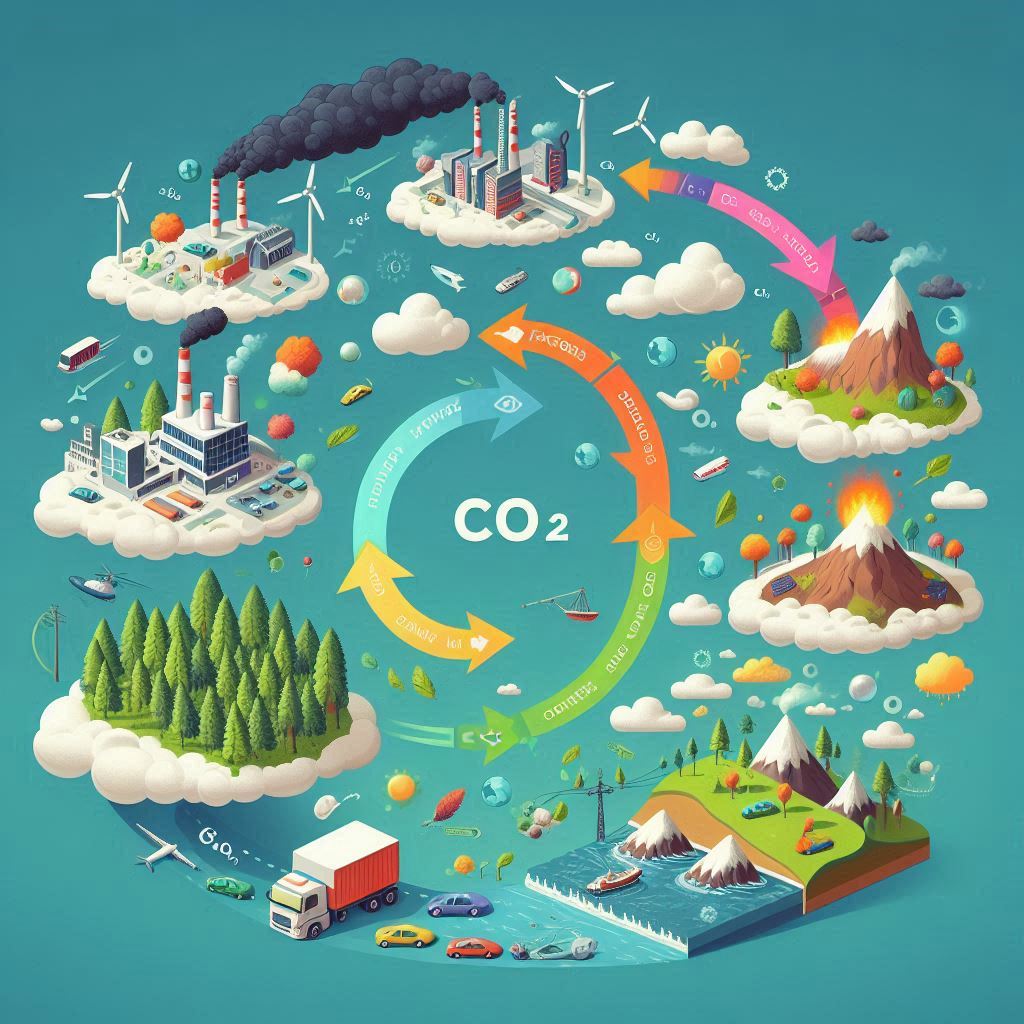
Not everyone in the field of science has abandoned the truth that carbon dioxide (CO2) and other “greenhouse gases” are good for people and the planet as opposed to bad. More than 1,600 scientists belonging to the Global Climate Intelligence Group (CLINTEL) signed the World Climate Declaration in August, declaring that man-made climate change is a myth.
Contrary to the prevailing narrative, there is no “climate emergency,” which means there is no need to abandon earth-based “fossil” fuels like gas and oil in favor of loud and unsightly wind turbines and Chinese-made solar panels.
“Climate science should be less political, while climate policies should be more scientific. Scientists should openly address uncertainties and exaggerations in their predictions of global warming, while politicians should dispassionately count the real costs as well as the imagined benefits of their policy measures.”
In this article
Most Climate Models Are False and Should Not Be Used to Form Policy
For as long as the earth has existed, the climate has always been changing. Sometimes it gets cold, while other times it gets hot—and taking away meat, cars, and freedom is never going to change that. As recently as 1850, the earth went through a “Little Ice Age,” so it is “no surprise,” the declaration states, “that we now are experiencing a period of warming.”
The government and media love to make much ado about nothing concerning the changing climate. All that “global warming” they love to rant on and on about is actually not that bad. “Warming is happening ‘far slower’ than predicted by the Intergovernmental Panel on Climate Change,” wrote Naveen Athrappully in a report for The Epoch Times.
As we have been saying for quite some time now, CO2 and other greenhouse gases are good for the planet. CO2 in particular is “essential” to all life on earth and is extremely “favorable” for nature and the actual greening of the planet.
“Climate models have many shortcomings and are not remotely plausible as policy tools,” the coalition warns, adding that these same models “exaggerate the effect of greenhouse gases” and “ignore the fact that enriching the atmosphere with CO2 is beneficial.”
Despite repeated attempts to disparage it as a pollutant, those who criticize CO2 are mistaken each time they label it as a planetary menace that must be eradicated for our survival. “Extra CO2 results in the growth of global plant biomass while also boosting the yields of crops worldwide,” further explains Athrappully. Furthermore, there is “no statistical evidence” to even remotely suggest that CO2 is in any way responsible for fueling more natural disasters like hurricanes, droughts, and floods.
"They're frightened at this point."
— Wide Awake Media (@wideawake_media) May 18, 2024
German MEP, Christine Anderson: The EU is in panic mode, as millions awaken to the "man-made climate change" scam.
"People no longer believe in [man-made climate change]… I think they're catching on to the fact that it's a gigantic lie."… pic.twitter.com/hY2L9OAp03
The EU is in panic mode, as millions awaken to the “man-made climate change” scam. People no longer believe in [man-made climate change]… I think they’re catching on to the fact that it’s a gigantic lie.
Christine Anderson, German Member of Parliament
“There is no climate emergency,” the group says. “Therefore, there is no cause for panic and alarm. We strongly oppose the harmful and unrealistic net-zero CO2 policy proposed for 2050. Go for adaptation instead of mitigation; adaptation works whatever the causes are.”
“To believe the outcome of a climate model is to believe what the model makers have put in. This is precisely the problem of today’s climate discussion to which climate models are central. Climate science has degenerated into a discussion based on beliefs, not on sound self-critical science. Should we not free ourselves from the naïve belief in immature climate models?”
"If you want to control the people, you have to control the CO2."
— Wide Awake Media (@wideawake_media) May 2, 2024
Dutch MEP Rob Roos: The "human-induced climate change" narrative is merely a pretext to install "a new form of communism", with the help of digital ID and CBDCs.
"Everything we do in life—breathing, living,… pic.twitter.com/CXJ4TUAIpU
The “human-induced climate change” narrative is merely a pretext to install “a new form of communism”, with the help of digital ID and CBDCs. Everything we do in life—breathing, living, travelling, eating—everything we do in life leads to CO2 emissions, and if you can control the CO2, you can control the people.
Rob Roos, Dutch Member of Parliament
Climate Science Should Be Less Political
In particular, scientists should emphasize that their modeling output is not the result of magic: computer models are human-made. What comes out is fully dependent on what theoreticians and programmers have put in: hypotheses, assumptions, relationships, parameterizations, stability constraints, etc. Unfortunately, in mainstream climate science, most of this input is undeclared.
There is in fact evidence that WEF is working with Google to ensure that you only see one side of the climate change argument. Even search results in Bing and other search engines are heavily weighted to support the climate change narrative.
🚨🛑WOW
— AntiCensorship (@truthscant) May 1, 2024
The WEF is working with Google to ensure that you only see one side of the climate change argument
Don't take my word for it- listen to what they say – why would they need to do this?
Because they want you to remain IGNORANT pic.twitter.com/WbgZHpyBx3
Natural as Well as Anthropogenic Factors Cause Warming
The geological record indicates that Earth’s climate has undergone significant fluctuations throughout its history, oscillating between natural cold and warm phases. Evidence of these shifts is well-documented in various geological formations and ice cores, which reveal patterns of temperature changes over millions of years.
Given the cyclical nature of the planet’s climate, it is not surprising that we are currently experiencing a period of warming. This warming phase follows the end of the Little Ice Age and fits into the broader historical context of natural climate variability. Such natural cycles are driven by a complex interplay of factors, including solar radiation, volcanic activity, ocean currents, and atmospheric composition.
"CO2 is 0.04% of the atmosphere, and human beings are responsible for 3% of that 0.04%."
— Wide Awake Media (@wideawake_media) May 19, 2024
Australian broadcaster, Alan Jones, puts a panel of smug climate zealots in their place. pic.twitter.com/vrJepwrRtl
CO2 is 0.04% of the atmosphere, and human beings are responsible for 3% of that 0.04%.
Australian broadcaster, Alan Jones
Warming Is Far Slower Than Predicted

The world has warmed significantly less than predicted by Intergovernmental Panel on Climate Change (IPCC) on the basis of modeled anthropogenic forcing. The gap between the real world and the modeled world tells us that we are far from understanding climate change.
Climate Policy Relies on Inadequate Models
Climate models have many shortcomings and are not remotely plausible as global policy tools. They blow up the effect of greenhouse gases such as CO2. In addition, they ignore the fact that enriching the atmosphere with CO2 is beneficial.
CO2 Is Plant Food, the Basis of All Life on Earth
"I think the dam is finally cracking."
— Wide Awake Media (@wideawake_media) May 18, 2024
Award-winning journalist, Alex Newman, explains how the "man-made climate change" narrative is finally crumbling.
"Three new peer-reviewed papers, published in major prestigious scientific journals… completely undermine the alleged… pic.twitter.com/wSH2CrDpgS
Moreover, elevated CO2 levels have positive implications for agriculture. As CO2 concentrations rise, crop yields can increase due to more efficient photosynthesis and improved water-use efficiency. Plants become better equipped to withstand drought conditions as their stomata—the tiny openings on leaves—do not need to open as wide, reducing water loss. This enhancement in agricultural productivity is crucial for meeting the food demands of a growing global population and can contribute to food security, especially in regions prone to climate variability and water scarcity.
In addition to boosting crop yields, increased CO2 can improve the nutritional quality of some food crops by enhancing the synthesis of certain vitamins and secondary metabolites. However, it is essential to consider the balance and interactions between CO2 levels, other environmental factors, and agricultural practices to fully harness these benefits while mitigating any potential downsides.
Thus, while often maligned in discussions about climate change, CO2 plays a vital and beneficial role in supporting plant life and, by extension, all terrestrial ecosystems. Its contribution to the greening of the Earth and the enhancement of agricultural productivity underscores the importance of a nuanced understanding of this essential gas in the broader context of ecological and agricultural dynamics.
Global Warming Has Not Increased Natural Disasters
The notion that global warming is not intensifying hurricanes, floods, droughts, and other natural disasters, despite ample evidence to the contrary, is a contentious claim. There is no direct statistical evidence linking global warming to these disasters.
She raises the inconvenient truth surrounding many net zero ‘solutions’.
— James Melville 🚜 (@JamesMelville) May 26, 2024
“These so-called green or ethical solutions aren’t solutions at all. Just very good marketing from the $1.5 trillion a year climate change industry.” pic.twitter.com/fneYTCHPTu
“These so-called green or ethical solutions aren’t solutions at all. Just very good marketing from the $1.5 trillion a year climate change industry.”
Rachel Matthews
We strongly oppose the harmful and unrealistic net-zero CO2 policy proposed for 2050. If better approaches emerge, and they certainly will, we have ample time to reflect and re-adapt. The aim of global policy should be “prosperity for all” by providing reliable and affordable energy at all times. In a prosperous society, men and women are well educated, birthrates are low, and people care about their environment.
In conclusion, while there may be some debate about the exact relationship between global warming and natural disasters, it is crucial to prioritize evidence-based climate policies and mitigation strategies to address this pressing issue and minimize the devastating impacts of these disasters on our communities and economies.
Read the WCD Declaration (PDF)
RELATED: Is Climate Change REALLY Happening?







